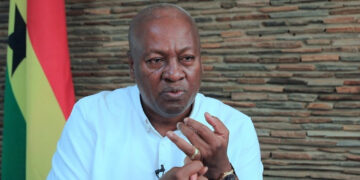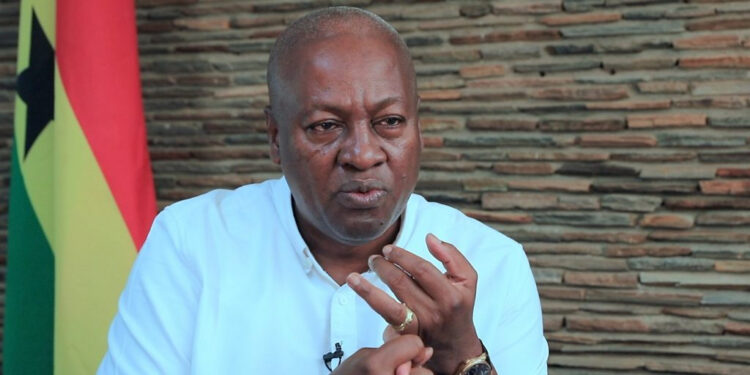By Ebi Kesiena
Flagbearer of Ghana’s National Democratic Congress (NDC), John Dramani Mahama, has made it clear that his acceptance of the December 7 General Election results hinges on the transparency and credibility of the electoral process.
In an interview with the BBC, Mahama emphasized the importance of a peaceful and fair election, raising concerns about potential irregularities and violence.
“If on election day, there is widespread ballot snatching, beating of people, military intimidation, and thugs rampaging, you want me to accept that result? It will depend on the transparency and fairness of the process,” he stated.
Mahama stressed that upholding electoral integrity is vital for Ghana’s democracy, reiterating his commitment to ensuring a credible election process.
As Ghanaians prepare to vote for a president and Members of Parliament on December 7, electoral transparency remains a key focus in what is expected to be a tightly contested race.
Vision for a 24-Hour Economy
Beyond the election, Mahama also outlined his plans to kickstart a 24-hour economy if elected president. While acknowledging that implementing such a system within a single four-year term might be challenging, he expressed his commitment to initiating the process as part of a phased economic recovery strategy.
“We will start at least,” he stated when asked if the policy could be fully realized within his term. Mahama described the initiative as a gradual transformation aimed at revitalizing Ghana’s economic landscape.
“You can’t put a cost on it immediately. The 24-hour economy is not an event; it is a process. Even while stabilizing the macroeconomic environment and reducing inflation and interest rates, we will begin implementing it,” he explained.
Benefits of a 24-Hour Economy
Mahama outlined the potential benefits of the policy, particularly in job creation and economic expansion. By incentivizing businesses to operate in extended shifts, the policy could lead to increased employment opportunities and productivity.
“If businesses are incentivized to run for eight-hour shifts, they can’t operate with the same number of people; they will need to hire more workers. The demand is there we have the AfCFTA [African Continental Free Trade Area] and the ECOWAS Trade Liberalisation Scheme,” he said.
Mahama’s vision reflects a broader effort to position Ghana as a hub for trade and economic activity in West Africa, while also addressing domestic challenges such as unemployment and underemployment.
As the elections draw near, Mahama’s dual focus on ensuring electoral integrity and proposing innovative economic solutions underscores his campaign’s central themes: trust, transparency, and transformation.




































